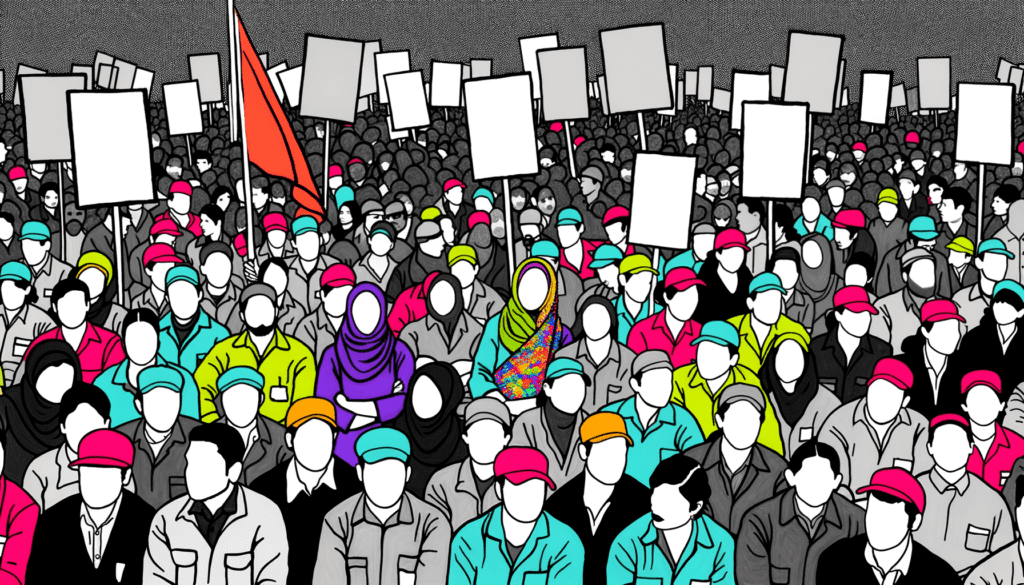A Community Struggles for Equity and Recognition
For decades, the dedicated food service and hospitality workers at Northwestern University have been more than just staff; they’ve formed the heart and backbone of campus community life. Last week, about 500 workers decided enough was enough, walking off their jobs early Monday morning. They’ve been without a legitimate contract since last August and now seek a fair, sustainable contract that not only respects their labor but enables them to retire with dignity.
“These workers are the heart and soul of Northwestern University and deserve to be treated with dignity and respect,” said Unite Here Local 1 President Karen Kent. Her words have echoed strongly through the halls of Northwestern, striking at the core of this often overlooked community’s struggle.
Most of these workers, from cooks and baristas to dishwashers and catering employees, represent marginalized and immigrant communities who consistently juggle immense responsibilities at work and at home. Union officials report that roughly 30% of these harmonious laborers identify as Black, 28% Hispanic or Latino, and 6% Asian, underscoring the rich diversity that contributes greatly to Northwestern’s fabric.
The Human Cost of an Unjust Contract
Veronica Reyes, an admired and longstanding member of the hospitality staff, voiced a sentiment shared by many of her colleagues: “I’m striking because we deserve to retire with dignity. I worry I’ll never retire, as the company isn’t giving enough to our pension.”
Retirement is a fundamental dream for any hardworking individual, reflecting the aspiration to enjoy life’s later years without battling economic insecurity. Yet, Reyes’ concerns starkly reflect an epidemic of neglect toward our indispensable service and hospitality workers, casting a potent light on a merciless cycle of low wage-to-retirement crisis haunting America’s labor sector.
Compass Group, the food service operator managing Northwestern’s dining, has indeed proposed some improvements, including immediate raises of $3 per hour, additional scheduled increases, a 16% immediate raise, back pay bonuses, and a commendable 80% escalation in pension contributions across the contract’s life. However, union organizers have flagged these measures as insufficiently restorative. The underlying anxieties over long-term job security, fair compensation, and sustainable pensions have only grown more pronounced due to perceived corporate reticence in genuinely committing to substantive change.
Veronica’s story emphasizes something profound — a pension offer alone is inadequate if it hasn’t ensured a worker’s peace of mind. Recognition of the entire tempo of an individual’s professional life is necessary if justice and dignity are genuinely the operative measures of any negotiations.
“Recognition of the entire tempo of an individual’s professional life is necessary if justice and dignity are truly the operative measures of negotiation.”
An Opportunity for Institutional Leadership and Inclusivity
Campus activities have undeniably been impacted as dining halls temporarily shutter, underscoring the workers’ critical role in a functional university environment. Some student activists have met the strike with vocal solidarity, and petitions from groups like Students Organizing for Labor Rights make clear there’s robust advocacy behind this cause.
Where does Northwestern—as an institution committed to excellence in education and ethics—stand amid this controversy? The administration’s cautious optimistic rhetoric claiming workers to be vital confronts stark limitations when not paired with robust advocacy and alignment with concrete worker-supportive actions. A profound transformation in institutional approach and rhetoric is vital if Northwestern aspires to truly demonstrate commitment to equity and fairness.
Espousing equity involves actively challenging insufficient policy frameworks, something many progressive institutions in history have adopted—transforming not just employee conditions but deeply influencing societal norms on fair labor practices. Columbia University’s own labor negotiations in recent years provide a powerful reminder. Campus-wide acknowledgment of fair wages, job security, and supportive retirement plans aren’t merely niche labor rights; they’re emblematic of profound respect valued across ideological spectrums.
This historical precedent poses an invitation to Northwestern’s administration: to exceed incremental measures of justice. Compass Group’s proposals represent progress but fall short of a fully justified societal benchmark profoundly necessary in supporting marginalized communities’ progress.
Ultimately, this struggle at Northwestern illuminates broader inequities within university systems nationwide. Yet, it equally poses considerable opportunity: a crossroads at which Northwestern—and indeed America—can choose substantive reform, honoring robust benefits, genuine pensions, assured job security, and empowered livelihoods.
Such trails beckon decisively: Northwestern’s administration—and similar institutions nationwide—face an unambiguous moral imperative to offer meaningful solidarity with these integral community members who, both well past breakfast and beyond sunset, turn academic institutions into heartfelt communities.

